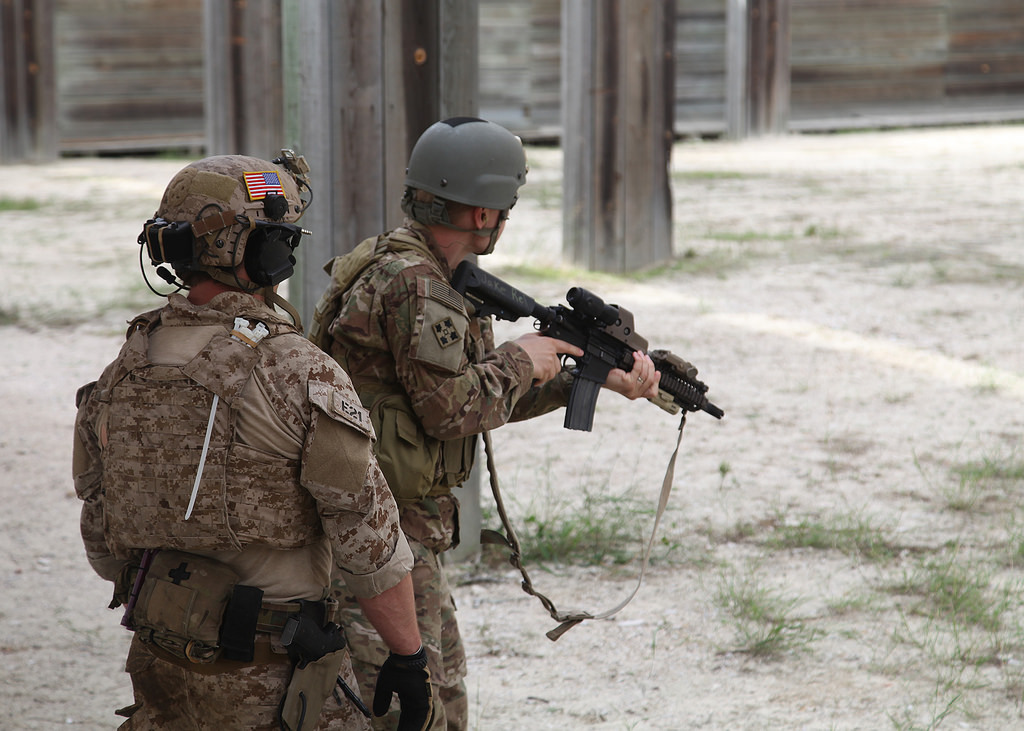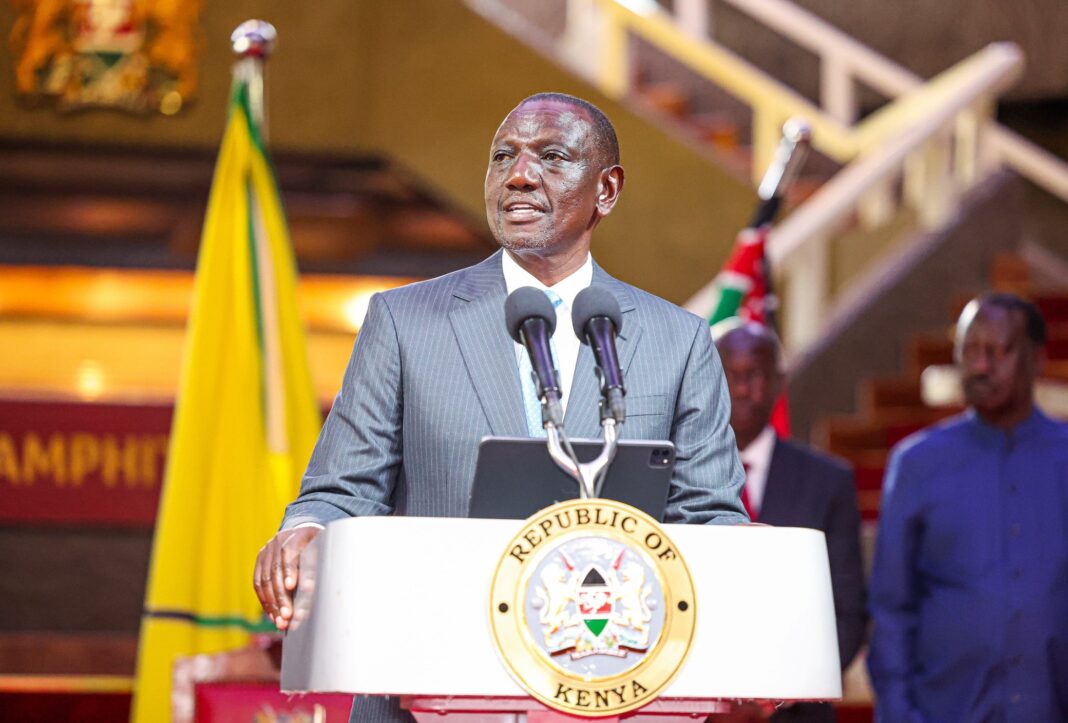President Donald Trump has openly questioned the necessity of continued US military operations in Kenya and Somalia, challenging a decades-old policy of counterterrorism partnerships in East Africa.
Speaking before senior military officials on September 30, Trump declared that America must stop “policing the far reaches of Kenya and Somalia” and instead confront what he called an invasion “from within.”
His remarks signal a possible shift in US foreign policy that could upend Washington’s security cooperation with Nairobi. Analysts warn that Trump’s comments raise uncertainty for ongoing counterterrorism efforts against Al Shabaab militants in the Horn of Africa.

Trump Turns Spotlight on US Military Operations in Kenya and Somalia
Trump told top commanders that America could no longer prioritize distant conflicts at the expense of its internal security. He said foreign missions, including counterterrorism operations in Kenya and Somalia, drained resources while ignoring threats inside US borders.
“Only in recent decades did politicians somehow come to believe that our job is to police the far reaches of Kenya and Somalia while America is under invasion from within,” Trump said.
He revealed plans to deploy military officials in major American cities such as New York, San Francisco, and Chicago, shifting the army’s focus inward.
Trump’s comments mark a dramatic departure from Washington’s established policy, which has long viewed East Africa as a frontline in the global fight against terrorism. His remarks raise questions about whether future operations targeting Al Shabaab will continue.
Counterterrorism Operations Along Kenyan Border
In recent months, US forces have intensified operations along the Kenyan border with Somalia. These missions have included drone strikes, air raids, and joint ground operations coordinated through the African Union Transition Mission in Somalia (ATMIS).
Kenya’s Defense Forces and the US military have worked together for years to weaken Al Shabaab, a group responsible for deadly attacks in both Kenya and Somalia. Washington has repeatedly justified these operations as vital for global security, pointing to Kenya’s geographic role as a gateway to the Horn of Africa.
Trump’s remarks, however, cast doubt on the future of these missions. Security experts warn that scaling back could embolden militant networks and threaten regional stability.
Kenya’s Strategic Alliance With the US
Kenya has long positioned itself as a reliable US partner in counterterrorism. Just last year, President Joe Biden’s administration designated Kenya a non-NATO ally, a status that elevated its military and economic ties with Washington.
The designation gave Nairobi access to advanced military equipment, intelligence support, and funding programs designed to bolster its fight against Al Shabaab. President William Ruto celebrated the move during his State Visit to Washington, calling it a milestone in Kenya-US relations.
But the Trump administration has already signaled a review of this alliance. Congressman James Risch recently proposed an amendment to the National Defence Authorisation Act that would re-examine Kenya’s non-NATO status within 90 days. The review would determine whether Kenya’s diplomatic and foreign policies align with America’s strategic interests.
This development comes at a time when Trump’s rhetoric questions the value of maintaining costly foreign partnerships. If the review downgrades Kenya’s status, the country could lose significant military and economic benefits.
Regional and Global Implications
Trump’s stance not only unsettles Nairobi but also raises concerns for other US partners in Africa. The Horn of Africa remains volatile, with Al Shabaab threatening trade routes, regional security, and international interests.
Military analysts say a withdrawal or reduction of US involvement could leave ATMIS overstretched, weaken counterterrorism operations, and allow extremist groups to regroup.
For Kenya, the timing is critical. Nairobi has invested heavily in its security cooperation with Washington, hoping it would serve as a deterrent against regional threats. President Ruto now faces uncertainty about whether his government can continue to count on Washington’s military support.
Observers warn that America’s shifting stance could push Kenya to strengthen ties with other powers, including China or Russia, who have been seeking influence in Africa through security and infrastructure deals.
Conclusion
Trump’s remarks questioning US military operations in Kenya and Somalia represent more than just a policy debate. They strike at the heart of America’s role in global security and its commitment to allies in the Horn of Africa. With a review of Kenya’s non-NATO ally status already underway, Nairobi’s once-solid partnership with Washington faces a serious test.
If the US scales back, it could embolden terrorist networks, destabilize East Africa, and weaken America’s global credibility. The world is now watching whether Trump’s words will translate into a withdrawal or remain political rhetoric aimed at domestic audiences.


